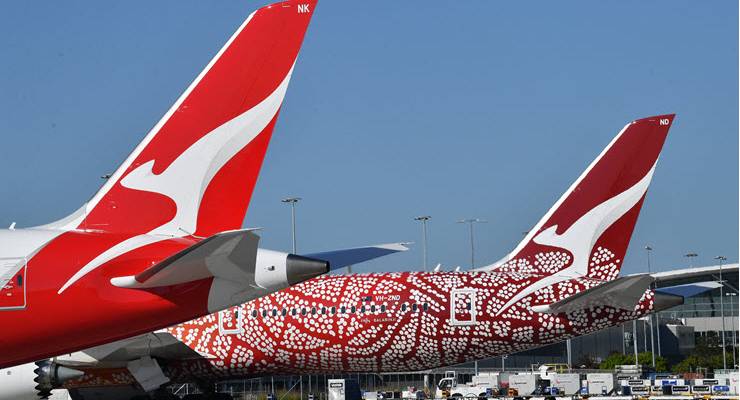
The government appears sanguine about the possibility of Virgin collapsing and Qantas being restored to the role of monopolist it held after the collapse of Ansett. Or, at least, it wants the owners and creditors of Virgin to think it is while the company struggles to find a source of funding to stay afloat in the crisis.
Officially the government doesn’t want to “pick winners” — an argument that was conveniently forgotten when it (like previous governments) picked winners in defence manufacturing, steel manufacturing, health insurance, energy, housing and the media.
The experience of Qantas as a monopolist provided ample evidence of why preserving competition in domestic aviation on major routes is a critical policy goal.
Domestic airfare data from the Bureau of Transport Economics shows a significant and long-term fall in airfares after Virgin Blue, as it was initially, entered the domestic wake in the early 2000s. The most obvious result was the establishment by Qantas of low-cost, low-quality airline Jetstar to compete with Virgin Blue, ending the days of $500 airfares to Sydney from Melbourne (one way, thanks).
For a nation heavily reliant on tourism, and without any serious alternatives to air travel between capitals, the re-establishment of Qantas’ monopoly would be economically damaging and a substantial transfer of wealth from Australian businesses and the community to Qantas’ shareholders, more than a third of whom are foreigners.
And no foreign airline will be entering the Australian domestic market for a long time to come, given the extent to which the international aviation market has been shut down, along with much of the world’s domestic aviation markets.
Qantas will be able to go back to its gouging old ways, at least until the smoking ruins of the world aviation industry are rebuilt some time in the 2020s.
Rather than propping up a competitor, whether by loan or taking an equity stake, the government could achieve similar goals by regulating Qantas as a utility. Its prices and those of Jetstar could be capped by regulation, and it could be required to maintain identified levels of service. This would end discount and sale pricing, of course, but there would be little of that anyway in a new era of Qantas monopoly.
Alternatively, the blunt force of regulation could be avoided if the government took a majority equity stake in Qantas as a condition of any support and operated it to preserve the lower-price environment of the world before the pandemic.
A government-owned monopolist, however, tends not to work out in practice. Those old enough might remember the days of Telecom, an empire run by engineers, unions and bureaucrats where customer service was an afterthought at best.
A government-owned Qantas is likely to produce the worst of both worlds of privatisation and public ownership — bureaucratic, inwardly focused, uninnovative, feather-bedded.
Qantas’ Alan Joyce has been ghoulishly campaigning against any help for Virgin since the crisis began, desperate to see the main competitive pressure on his company, and the primary obstacle between him and a return to monopolistic gouging, fall victim to the pandemic.
If he gets his heart’s desire, the government should make sure it’s of the “be careful what you wish for” kind, and lock Qantas into a pricing straitjacket that will preserve the benefits of competition in the absence of a competitor.
It’s a second-best solution for a market that has seen repeated failure over decades.








Crikey is committed to hosting lively discussions. Help us keep the conversation useful, interesting and welcoming. We aim to publish comments quickly in the interest of promoting robust conversation, but we’re a small team and we deploy filters to protect against legal risk. Occasionally your comment may be held up while we review, but we’re working as fast as we can to keep the conversation rolling.
The Crikey comment section is members-only content. Please subscribe to leave a comment.
The Crikey comment section is members-only content. Please login to leave a comment.